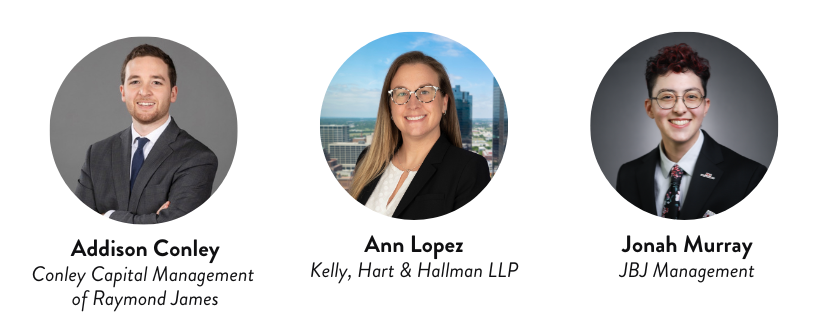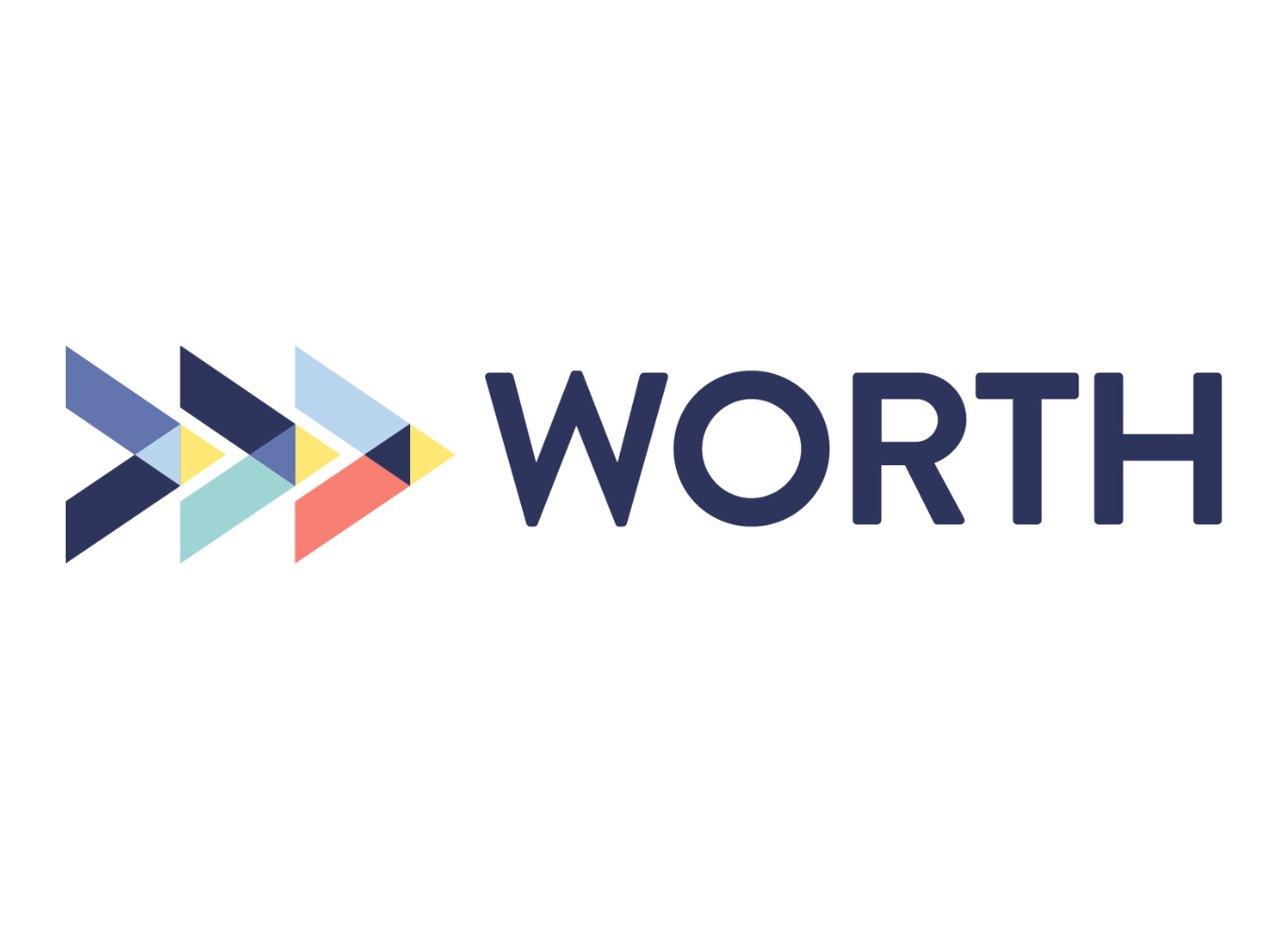WORTH is a group of young professionals who ignite meaningful change by giving together. With professional guidance, members learn about community needs, engage with peers, and collectively support nonprofit organizations serving our region. Members have granted over $120k to local nonprofits.
The group is kicking off the 2023 grant cycle on Thursday, January 26th. Click here for more details.
In this Q&A, we talk with:

What appealed to you about WORTH, and why did you join?
Addison: I joined WORTH wanting to grow in my knowledge of the issues in our community, wanting to give back, and wanting to connect with like-minded young professionals.
Ann: As an estate planning attorney, I advise clients with respect to their charitable giving. At the time I joined WORTH, I had not yet begun my philanthropic journey and was searching for a meaningful way to start while balancing a modest budget.
Jonah: I joined WORTH because I wanted to learn how to cultivate philanthropic practices that are local, sustainable, and impactful. As a young professional straight out of college, WORTH appealed to me as an accessible way to participate in philanthropy.
Ann, you were part of WORTH’s inaugural cohort, and now you’re on North Texas Community Foundation’s board. What was your experience like as a WORTH member?
Ann: My experience as a five-year member of WORTH was all positive. I walked away from each WORTH event having learned something vital about our community. I particularly enjoyed the deliberation meetings, as the collaborative nature of those meetings allowed us all to share our thoughts and experiences, oftentimes influencing my opinion on the organization I would ultimately vote to receive the grant that year.
Addison, you’re leading the current round of WORTH. How does WORTH help its members make a difference?
Addison: A lot of our members have no background working with nonprofits, so WORTH helps the members by guiding us through the grant cycle process. Our events go through each phase of funding a targeted issue: background and education of the issue, a request for proposals (inviting the nonprofits to apply), reading and understanding a proposal, and then deciding which nonprofit will receive the grant, and then going on a site visit to the nonprofit that receives the grant.
Jonah, you’re back for your second round of involvement with WORTH. How does the program work?
Jonah: Each year, WORTH researches and votes on a particular cause we see in the community that we want to support through our grant. We reach out to experts to learn about issues related to the cause, how they are being or should be addressed, and learn as much as we can. We then review the responses of nonprofit organizations to the request for proposal the NTCF put out. We decide our top finalists, invite them to present how they would use the grant, and then vote as a group where we think our grant will have the best impact. I really enjoy being able to do a deep-dive on a particular issue to learn how our community can best address it, then being able to take action through our collective grant.
Which nonprofit funded by WORTH has inspired you the most?
Addison: Last year our focus was children’s mental health, and I was blown away by Cancer Care Services. My wife is a therapist at the Art Station, so I knew that children’s mental health was a tremendous issue coming out of the pandemic. Also, when I was 14 years old my mother was diagnosed with cancer, so their organization hit close to home. Seeing all that Cancer Care Services provides–from financial guidance, to resources they offer, to counseling services for families and children–amazed me. They are an invaluable resource to our community.
What advice do you have for young professionals who want to do more for their community but might not feel like they have the experience or resources to give?
Ann: Reach out to your friends at the North Texas Community Foundation! They are happy to answer questions and help you make connections to achieve your charitable goals.
Jonah: To get started giving in your community, you should ask yourself what you have to offer, what you care about, and who you’re connected to. Do you have free time? Try volunteering at your local food bank or another organization you know, and just explore different ways you enjoy spending your time. Do you have expertise in finance, event planning, technology, or another career path? Look into how your talents can help you serve as a nonprofit board or committee member. And most importantly, talk to people about issues and causes you care about.


